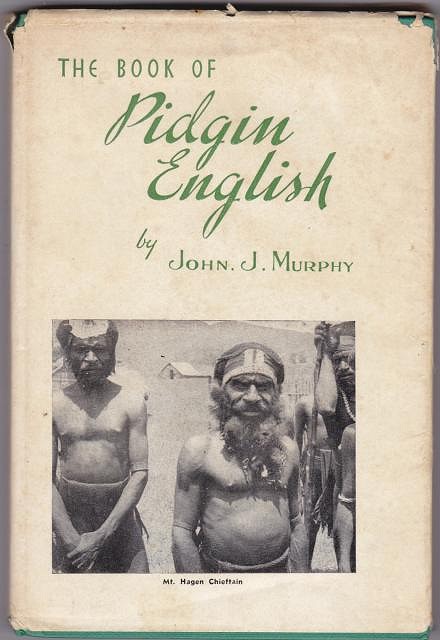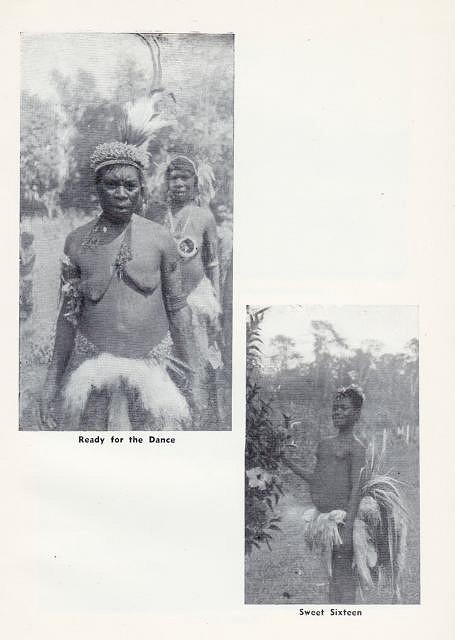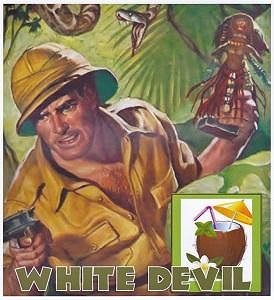Beyond Tiki, Bilge, and Test / Beyond Tiki
Pidgen
Pages: 1 6 replies
|
T
Tiki-Toa
Posted
posted
on
Tue, Jul 27, 2004 6:45 AM
http://www.extreme-hawaii.com/pidgin/vocab/ "Would you like to understand the locals here in Hawaii? Reading pidgin will help but HEARING it will be even better. Read, listen, and repeat--or at least try. Neat to hear them say the words. |
|
T
Tiki_Bong
Posted
posted
on
Tue, Jul 27, 2004 9:50 AM
Pidgin has an interesting history. The word itself is actually a bastardization of a Chinese word for 'business'. It actually began in the Hawaiian Chinese community as a language by which to conduct business between the Chinese and the English speaking business owners. Pidgin isn't a standardized method of communication either. Meanings can differ even between neighborhoods. |
|
UB
Unga Bunga
Posted
posted
on
Tue, Jul 27, 2004 1:21 PM
|
|
WD
White Devil
Posted
posted
on
Thu, Oct 24, 2013 12:46 PM
"The book might be regarded as a standard work upon what has been a most controversial subject...I have been informed by others that the labour involved in collecting material for the book has, over many years, occupied the all too few spare hours of a conscientious Patrol Officer."
Mi laikim buk bolong piksa sagititz! Tiki Misanthropologist [ Edited by: White Devil 2013-10-25 10:06 ] |
|
TD
TIKI DAVID
Posted
posted
on
Thu, Oct 24, 2013 4:03 PM
|
|
T
tikilongbeach
Posted
posted
on
Thu, Oct 24, 2013 4:20 PM
The missus has a pidgin Bible. Her great-grandfather built one of the churches on Maui many years ago. It's fun to listen to her grandfather speak pidgin. |
|
WD
White Devil
Posted
posted
on
Fri, Oct 25, 2013 9:51 AM
This is interesting to me because it implies that Pidgin-English differed from island to island, and from language to language (as would make sense). This particular book was published in Brisbane, and applied only to Melanesian Pidgin-English. It was compiled by a British officer in his spare time, and reflects an entirely different mindset than portrayed in academia and popular culture as "the white devil." I present the "Apologia" below in full... "Apologia Melanesian Pidgin-English is a true Melanesian language of great adaptability and facility. It has a synoptic vocabulary of over 1,300 words and through them it is possible to translate about 6,000 English words--more words than the ordinary Englishman is accustomed to use. The vocabulary is derived almost exclusively from Melanesian and from English. But many of the words have entirely lost the meaning of their etymons, and pronunciation has also changed considerably. It is a common barbarism to give some Pidgin-English words the meaning of their etymons. For example, "kill" is frequently translated as "kilim,"and"shove" or "push" as "pusim." To learn Pidgin-English, one must approach it as one would approach any language, French, German or Esperanto. Unhappily the transient tourist, learned, no doubt, in his several departments, and even some of our ablest residents, castigate Melanesian Pidgin-English as a hopeless, complicated and unsatisfactory medium of expression. Unfortunately they are judging the language on a very superficial knowledge of it. It is unfortunate that the antipathy and prejudice against Melanesian Pidgin-English is not directed against the painful jargon of broken English and sonorous twaddle which too many pass off as Pidgin-English. We are safe in saying that some thirty per centum of the friction between master and servant is due to the former's failure to learn the language of the Territory. There are others again with only a rudimentary knowledge of the language who declare it is limited, inadequate and given to ambiguity. This is a comfortable fallacy that is to be desecrated, for Melanesian Pidgin-English is a most facile language, capable of embracing any subject. It is quite as exact as any native language and more adaptable. As for ambiguity; it mainly exists in the mind of the English speaking white man. Of course there are things outside the experience of Pidgin-English and for which there is no vocabulary. We speak of the sciences and philosophies and, to a certain extent, of the trades, with their technical terms. But this is natural as languages and vocabularies are largely a matter of contact with knowledge and discoveries, of mental experiences, and of physical experiences. It is true that Melanesian Pidgin-English has its deficiencies and failures. But so has any Melanesian language; and to no less extent. For the Melanesian languages form a comparatively early state in language development. The advantages of Pidgin-English, however, far outweigh its disadvantages. It is easy to learn for both native and European; it is adaptable; it follows the mode of thought of the Melanesian; and it is universal in the Territory. English is too difficult for the native and accessible to only a few. Yabim and Kotte are taught in only a few mission schools; are geographically and numerically limited; are little used outside the school and church; are not readily learnt by the white man; and they tend to give rise to jealousies towards the natural Yabim and Kotte speaking tribes. A native language is out of the question for the same reasons that apply to Yabim and Kotte. I speak of times and conditions as they are now. The ideal and the aim is, of course, to eventually have English as the common language. But before that is achieved, more generations will pass than you or I will survive. And, pray, don't be astonished if I tell you that I do not regard Pidgin English as a "stepping stone" to English. Finally mark this. We did not teach, and are not teaching, Pidgin-English to the natives. They taught, and are teaching us." From the 7th edition, 1962. [ Edited by: White Devil 2013-10-25 09:55 ] |
Pages: 1 6 replies




